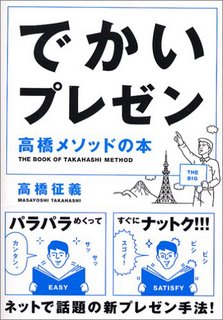
Thank you very much indeed for that very kind introduction.
I think that I want to start off really by saying two things. I am not sure that I am an entrepreneur, to my mind an entrepreneur is someone who keeps starting new businesses; a kind of restless soul who keeps doing new things and to be honest I've only ever done one thing. I started Carphone Warehouse and I stuck with it so I was lucky to find it and I haven't had the inspiration to start something new.
I 'll give you my view of the world; the view of someone who has started just one business and how we managed to make that work. And I think that the second thing is (and I am going to preface this by saying what we aspire to be like, not what we are like all the time.)
As an organisation we make absolutely horrendous and ridiculous mistakes constantly all of the time its extremely frustrating process running a business and I think that there are 14 and a half thousand people in our business.
Sometimes you look at them all and its actually a miracle if you look at all of them and all the relationships the way that we all interact that anything works at all. But we do our best and we have systems together.
The story of the business is I suppose one of them business folk stories in that I left school had a place at university and got cold feet after a year out. I felt I wasn't cut out for doing more academic work, I just wanted to get on and do something. I went to work for NEC which was a big producer in those days, number one or number two in the market for making mobile phones.
I actually started in the computer business and then got transferred to mobile phones. And it was the most amazing world to move into. We're talking about it a bit ahead of time; I look at most of the people here I guess you can't ever image a world that didn't have mobile phones.
But in those days as the name of Carphone Warehouse suggests we sold things that were actually fitted in your car, that would not come out of you car. You drove around with the thing in it, that was it. When you got out of the car and switched off, when you switched the ignition off, you couldn't use it again until you got back inside the car. I know that sounds extraordinary now but in those days people thought it was pretty cool.
And we used to out with these things and these were 500 - 600GBP in 1989, that would be 1,000 GBP in today's money maybe even more. And then portable phones started coming.
So I could see this thing, I'd been in the computer business; it seemed really simple - you could explain to a customer what a mobile phone did in about five seconds. They got it, they wanted it, they liked it and it changed people's lives.
And probably the only real entrepreneurial insight I had was sitting in NEC I saw that most of the people I was selling to were targeting big companies to sell them to. These guys were targeting the BBC and Xerox and all these kinds of people that they imagined had big fleets of engineers and sales reps on the road and could get amazing productivity through having mobile phones. But I could see and you could watch what was happening in the world, the people who it transformed their lives it was not big businesses but small business and the self-employed because if you were a builder you could get work whilst you were at work by mobile phone.
Before that, and again no one will hear will remember this if you wanted to get a builder to come and do some work on your house you had to leave a message on their answer machine at home and when they got home they would ring you back to arrange to do the work and book an appointment.
So this was a transformation for people who ran small businesses. The idea of Carphone Warehouse was to say we should let the people, these self employed people the same chance to get a mobile phone, to get advice and service as someone at BP or Shell or some other enormous organisation.
So I left NEC in 1989, started the business in an apartment building at the top of Harley Street called Harley House. I had a friend of mine who was a music publisher and he had on half of the flat and we had the other half of the flat and we advertised in the Evening Standard, on Capital Radio; those kind of things.
People would call up, we'd book an appointment and we'd send one of our engineers out and they'd put the phone in at the customers premises home or office and they'd go and install it in their car.
We moved in by May and by October the landlord evicted us as we were clearly carrying out a business in a residential apartment and there's one thing being a music publisher as they just take themselves up and down the lift and we were filling the lift up with phones and trucks were turning up and we were making a nuisance of ourselves.
So we very quickly got kicked out and we went to a shop in the Marylebone Road near Baker Street where we still have a store there today. When we first got there we could afford to rent it, but it was a wreck it had been a hearing-aid shop before and it was all boarded up and we had no money to do it up, so we lived behind the barricades for another six months selling over the phone as we had in the flat but making enough money so that by October we opened our first ever store.
At the time people thought that it was insane to sell mobile phones through shops, people bought them through newspaper ads, engineers visited your house it was an expensive product.
And from those very humble beginnings we added another store and another store and the thing kept the momentum. The market grew at an explosive rate and new networks and new handset manufacturers came out and we had the most amazing ride for the next ten years. I had no inspiration at the beginning that this was going to be a revolution,
I think that the mobile phone is the fastest-growing, selling consumer good in the UK or product in the UK. I had no idea about that. I just left NEC, I was trying to make a living and bought some phones. I think the reason that we did better than some of our competitors and the main reason that we managed to keep on growing it, and it still resides in the company today but its hard to keep the flame burning is that when you've got a business where you absolutely start with nothing, we were in a derelict shop surrounded by insulated rooms where people used to do hearing aid rooms prescriptions for people.
And you were sat in there, we had nothing, we had no experience, we had no money, no brand just enthusiasm really. All we knew was that we had to do more for the customer to win their business than anybody else would. And that's all we actually had was our passion and our enthusiasm and that's all we had to stop you going to some much bigger company.
And its hard to keep that going, and at the heart of the company that still beats and there's a sense that we're not owed a living. And I wasn't aware of it at the time but we actually created a role for ourselves that didn't actually exist.
Who is to say that they needed a middle man between a customer and the mobile phone network, why couldn't they have sold directly to the customer? But somehow we sort of inserted ourselves in there with customers, we worked hard with the customers and they came back and told their friends. And ultimately you get a bit of momentum going and then suddenly you reach a point were it becomes more difficult for the networks and the handset manufacturers to ignore you. Till you get to the stage now where we'll connect more mobile phones than any mobile phone network in the UK.
So we're bigger on a monthly sale basis than many of our suppliers. Its kind of like you reach a point in the same that Tescos reach with Procter & Gamble or Unilever with some products, where actually if you want sell a product be it a detergent or food product in the UK if you don't have Tescos your missing such a large part of the marketplace that you can't succeed without them.
And our very original plan all the way through was to say we have to get ourselves in a position to say the only way to future-proof ourselves that whoever comes into the marketplace, whatever they sell they only way to launch it is in our stores.
So I guess the lessons that I take out of that are two-fold really that I'd pass on to anyone else. You've got to work harder for people's business than anybody else will and you've got to think about ways to deliver that. And secondly you've got to get yourself a certain amount of scale in the marketplace to ensure that people can't ignore and can't disintermediate you out of the process. And those are the two very critical things I would bet that right now if you went to talk to the various CEOs of the various mobile phone networks, they'd really rather that Carphone Warehouse hadn't got as big as it had got.
It would have made his life a great deal easier if we hadn't had done that and we've done that and it has become more powerful because its kind of through customer power. Which is that if customers keep choosing you and customers keep choosing Tescos or Walmart or whoever it may be, then the suppliers can't ignore the influence that you have in the marketplace.
I spend my life thinking about what do I need to do to make what we do better than what anybody else does and give us an advantage and what do I need do I need to do to ensure that no one can come and take our place that there is no new Carphone Warehouse that wants the business more, that is going to get up earlier, that is going to work harder than we do. And that keeps me awake at night. I think that one of the guys who founded Intel, a guy called Andy Grove coined the expression Only the Paranoid Survive and that's a kind of chilling thought, but I think that in business today the world is changing and you have to be pretty paranoid.
Customer are changing fast, habits are changing very fast and if you don't adapt to that someone will turn up and start eating your lunch. You have to stay extremely alert.
Carphone Warehouse grew up at a time was quite interesting, it was a time that was kind of post-Thatcher were consumers had started to become much more demanding about what they bought and kind of had an idea that their choice was much more powerful that knew this when they bought. There was a sense that people are turning against large institutions they don't like whether its the government, the police, Marks & Spencers or the big kind of established institutions are sort of under attack from people. People have been traveling more, they're exposed to more advertising, there is much more competition around within the marketplace and as such if you started a new business and you started a new brand and you looked like you were trying harder people were much more likely to give you the benefit of the doubt 15 or 20 years before that time.
In fact, the process has continued and continued to grow even since I started the business in '89 and it is much easier to start a new business now than it would have been 25 - 30 years ago when it would have been massive barriers to entry.
At the same time and I guess these guys feel like household names now that they've been around but when Carphone Warehouse was getting going, Pret a Manger was getting going, Dyson was just building his vacuum cleaners, Virgin Atlantic had been around for a while, Starbucks was teaching us how to pay 20 times more for a cup of coffee than we'd ever done before. Freeserve, Freeserve has been and gone now, but Freeserve was teaching people that they didn't need to pay to get on the internet. Direct Line was showing that you could buy insurance directly rather than through a broker. Amazon came along sometime afterwards changed the way that people bought books and music.
And people like Nokia changed themselves from producing rubber tyres and wellington boots; selling goods to Russia. They had an extraordinary moment sometime in the 80s after the collapse of the Soviet Union they decided to abandon their old heavy industry stuff, they bought a business that made mobile phones and the rest is history. They became the biggest mobile phone company in the world, I think that at their peak 70 per cent of the entire value of the Finnish stock exchange was represented by Nokia shares.
But if you think all of those companies came into marketplaces where there were established players: people bought their sandwiches from Marks & Spencers, they flew with British Airways, people bought their vacuum cleaners from Hoover etc.
And all of these guys came into the marketplace were the barriers of entry had come down a bit as I said, what they actually did is sit down and said how do people actually use the products that we sell, how do they buy them and how can we make the experience better.
And they went into a marketplace looking at it from the customers point of view, not looking at it from a suppliers point of view; in the way that many many people do I kind of always sum this up and I try to get our business to think about it is that they actually sold things to people in a way that they wanted to buy them.
And were we've made mistakes its too often where we've made our lives more convenient, but its often not in the best interest of the customer. That's when it all starts going wrong and thats when the wheels start coming off. I don't know who said it but another great quote is that people get the competition that they deserve.
And in a funny way the British Airways and Air France's deserve easyJet and Ryan Air as they charge the premium for a product that people didn't really value and services they didn'tt really want to pay for. These guys turned around and said what do they really want, whats the minimum I can deliver on price that will absolutely blow their minds away.
First Direct gave the clearing banks the competition they deserved and you can argue they still do.
When I look at some of the big old-fashioned businesses and some of those who supply us they're walking backwards into the future. Their walking into a future, but their walking into a future looking at what they've got today and they're trying to protect it instead of turning around and looking at where am I going and what do I take. And if you try and keep everyone off your bit of grass you're going to end up tripping up and there's a lot of people looking forward taking the ground away from you, so the other thing of only the paranoid survive is kind of eat your children before someone else does. You can't have sacred cows within your business that you say I can't do this, I need to protect this.
We do a very weird thing and I have a lot of trouble explaining this to our investors: we have a rule within our business that we mustn't increase our margins. We don't want to make more money on the products that we sell tomorrow than we do today. Every time we can get an improvement in terms of the price that we pay, we'll pass it on to the customers, we'll try to turn it into volume and create more of a scorched earth and it makes it more difficult for anybody else to compete with use as we'll get such scale. And this world, scale and market share is everything; where your dealing with big suppliers and trying to get competitive advantage against people who are selling very similar products. We go as far as to describe it as the Tyranny of Margins.
At the moment we must be BT's worst nightmare.
The person who is your worst nightmare is the person who isn't in your business today, when we started TalkTalk we didn't make any money out of fixed-line telephony; so any money we made was better than the money we made already. If we made a pound out of it, its a pound more than we had yesterday. Its a nightmare because BT has a business that makes a billion GBP per year and they've got these lunatics running around ruining all the economics of the marketplace, acting in what must seem to them in a manic crazy manner.
Their problem is and their decision has always been as its part of their DNA - What we'll try and do, is we'll try and confuse the marketplace, but we wont reduce prices to our customers because to reduce the prices that would make it impossible for TalkTalk to compete with us we'd drop them by like a third and that would just cut our business from a billion GBP to 600 million. We just can't afford to do that. Were losing some customers every year to TalkTalk will lose us less money. The problem with that is its like someone's cut one of your arteries and the blood is just dripping away, it won't kill you today but the blood just keeps pouring out.
Ulitmately you'll find you're nowhere. Our biggest thing is try never to get trapped by margin a way that you couldn't compete with a new player and keep turning your buying power into being even more competitive against people and make it much harder for people to get into your business and take your share. That is one of the most critical things to do.
You might imagine my investors think that's an odd thing and as we get more powerful we can't increase our margins: I keep telling them and I suspect they'll keep not understanding but we'll keep trying to do that.
I think also the thing that I really notice changes as you get bigger and I try and fight against is that big organisations are comfortable.
Its the end of February tomorrow and you know what, everyone is going to get paid at Carphone Warehouse and there is no doubt that this is going to happen. But anyway, our company was best when we didn't know if we could pay ourselves at the end of the month or not as that gave a real energy a real spirit, if you didn't make it happen maybe the company was going to go bust and we couldn't all pay ourselves. Today everyone is going to get paid, we were going to launch this at the beginning of April but its all a bit difficult so we'll delay it by another four weeks. And in big organisations decisions don't get made, things get left because its more comfortable to do nothing.
So I spend my life as the organisation gets bigger trying to be more-and-more unreasonable and making it an uncomfortable place to sit in. It sounds a terrible thing to do, but otherwise I'm terrified that we'll get as many of my suppliers are: lazy, sloppy, bureaucratic. People that deal with us may say that we are that already.
And I look at some of those and they just can't get out of their own way, the whole thing is so focused internally. The other thing is if your driver or entrepreneur to keep your passion, keep your drive and keep setting the organisation unreasonable goals otherwise it will never stretch itself and someone smaller neater, nimbler, more hungry, more aggressive will turn up and start taking over. It comes back to this thing about keep on just being paranoid about what we do. I think of the things I find most difficult: we have an amazingly strong culture within the business, you know we have grown enormously I don't really know how that happened.
What we did to create the culture is we did more tomorrow of what we did today and we kept growing but ultimately we kept working at it and its all worked out ok.
That means as you get biggers its actually quite difficult for me to say I really need to focus on that as that was a key thing that made the business, I am not entirely sure what it was that did make the business, so I just keep on trying to live by my instincts, impart my passion in the organisation and also two things most of the stuff that happens in business is common sense not amazing inspiration: particularly if you work in a retail business as everyone of us is an expert in a retail business as everyone of us is a shopper.
You know what its like to go in a great shop: you know what its like to go in WH Smith and you know what its like to go to Pret a Manger and you can see the difference in the two organisations just by walking into through the door. All of us have that experience and all of use can say I want to run a business like that one.
I go to work and try not to be like WH Smith or Boots or whoever it maybe.
And also its actually just about execution and effort, its not one amazing thing you can do, there's not ten amazing things, its a million. Its tough and its demoralising, its like them people that spin plates I spend all my time getting more plates spinning and I run round faster trying to keep more plates spinning and when you least it expect people will start hurling rocks at you and making life difficult.
After all that I love it, I love working as a team, my best time of year in the business is the run up to Christmas, earlier in the year everyone is travelling around the place dealing with suppliers, by the end of November we've bought it all, we've got the stock, we've booked the advertising. If we've got it wrong there's nothing we can do about it, the die is set, plans are made.
Actually there's a great sense then because everyone is back in the business and all anybody is focused on and caring about is the execution of the plan. We're like the team in Marylebone Road just bigger, everyone is focused on the customer, on the sales results and it feels a bit like the old days.
I'd just like to end with a quote I read a while ago from Roger Bannister after having done the four-minute mile "Its the ability to take more out of yourself than you've got'. When I was 25 I had no confidence that I've managed to grow this business, somehow along the way I've figured it out. And the thing that gives me the most confidence is the people I meet at all levels of government and business, they're just human, there's a lot of fallibility out there. Its absolutely possible for anybody out there to build a business that they have the drive and passion to do.
























